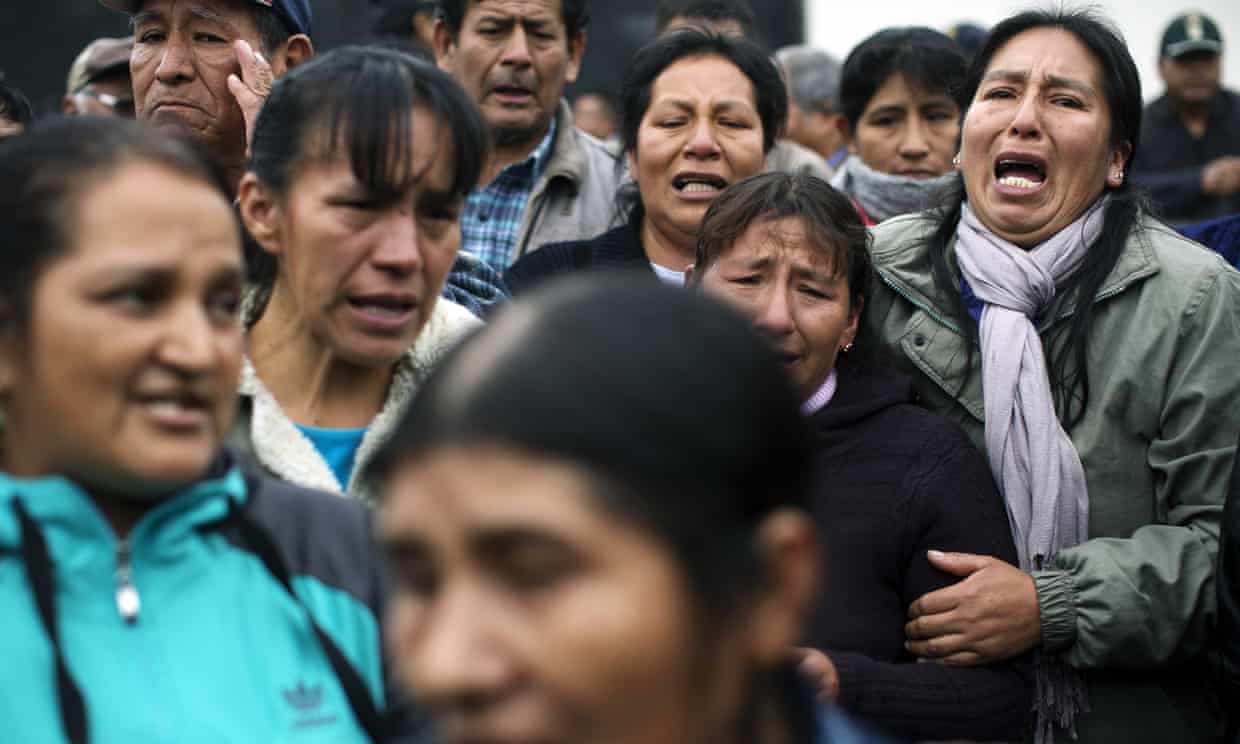
Survivors and relatives of those killed in the Accomarca massacre
Thirty-one years ago, almost to the day, a terrible thing happened to the residents of Accomarca, a largely Quechua village in the Andean province of Ayacucho. On August 14, 1985, the Peruvian army entered the village, looking for Shining Path fighters. Finding none, they took the villagers, around 70 of them, separated the men from the women and children, killed and burned the men; rape and then killed and burned the women; killed and burned the children. For thirty-one years, the women of Accomarca have demanded justice for the violence that was wreaked upon their village, families, community, and upon themselves. This week, a court gave them something that begins to approximate justice.
From the day of the Accomarca massacre until today, women have led the movement for real justice: “For groups that are not allowed a voice in the administration of justice, how does one quell a desire for retribution? For whom does reconciliation sit like a lump in their stomach and a constant irritant of their heart? For women, especially the widows. The work of grief is `women’s work,’ and women literally embody the suffering of their communities in this gendered division of emotional labor. Thus it is phenomenological that they would carry the memories of unaddressed wrongs in their nerves, the lower back, in the nape of their necks. A thwarted desire for justice becomes a felt grievance. It was long conversations with women that demonstrated the need for a political economy of forgiveness and reconciliation. Without economic redistribution, asking people to feel `forgiving’ is itself an immoral act. For the women (and the orphans) their poverty serves as a constant reminder of all they lost. Consensus-making mechanisms may stifle their voices but not their rage.”
While the bestiality of the Peruvian army in Accomarca is beyond horror, the real story is the women who refused to sit down and shut up, who refused to melt into the Andean landscape as just another unfortunate, but unavoidable, consequence of a dirty war. The women of Accomarca told their stories, repeatedly, and insisted that the stories were theirs. They consistently rejected the bartering system in which survivors share their pain and trauma and, in exchange, receive compassion from a “grateful nation.” From 1985 until today, the women have insisted they don’t want compassion. The women of Accomarca want indignation. First, they organized indignation in their families and communities, and then they moved to Lima with their structures of indignation. They want indignation to move the nation to transform the violence. They want people to understand that the material and economic poverty of their lives are built of the ashes of their loved ones, and that must end. They want the nation to address the racist sexist violence that surrounds and attacks Quechua, and all, indigenous women in Peru.
The women of Accomarca – including Salomé Baldeón, Cirila Pulido Baldeón, Teófila Ochoa Lizarbe, Justa Chuchón – demanded a justice that would replace the smell of burning flesh from their noses, the taste of soured milk from their breasts, and the pounding rage from their hearts and minds. This week, Peru’s National Criminal Court convicted ten officers and soldiers for their roles in the massacre. Meanwhile, the women of Accomarca continue to organize. To this day, those who were killed in the massacre thirty-years ago have yet to be properly buried.
(Photo Credit: Proceso / Rodrigo Abd / AP)